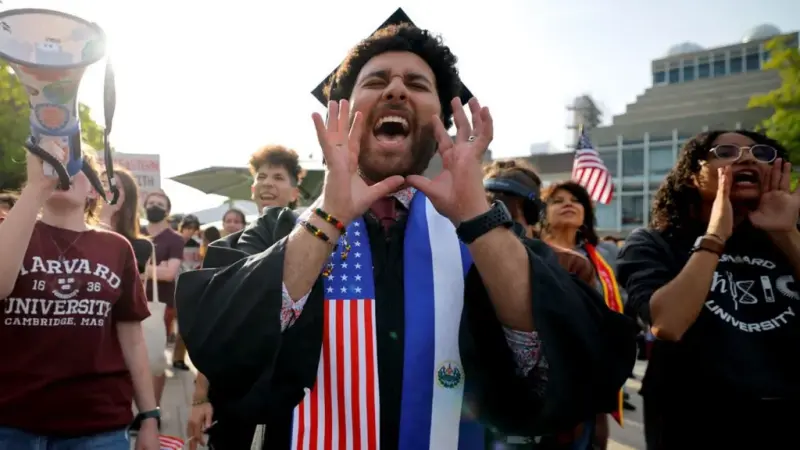The administration of U.S. President Donald Trump has instructed American embassies worldwide to halt scheduling student visa appointments, as it prepares to implement stricter social media checks for applicants.
An internal government memo indicated that enhanced social media screening will be applied to student and foreign exchange visa applicants, a move expected to have major effects on how embassies and consulates operate.
This decision is part of a broader clampdown by the Trump administration on top U.S. universities, which the president claims are dominated by left-wing ideology. He has criticized these institutions for not adequately addressing antisemitism during recent pro-Palestinian campus protests.
In response, China has urged the U.S. to safeguard the rights of international students. As part of the broader actions, the administration has suspended hundreds of millions of dollars in university funding, attempted to deport students, and cancelled thousands of visas. However, many of these efforts have been stopped by court rulings.
The White House has accused some universities of allowing pro-Palestinian demonstrations to turn into displays of antisemitism. In contrast, university officials argue that the administration's policies threaten free speech. Critics say that the proposed social media screening is another step toward undermining First Amendment protections.
President Trump has consistently claimed that his actions are intended to uphold free speech.
Harvard University has become a primary target of these efforts. The Trump administration has frozen $2.65 billion in federal funding to Harvard and placed an additional $100 million in federal support under review.
Harvard’s president warned that the funding cuts would negatively impact the entire country, not just the university, since much of the affected research had been classified as high-priority by the government.
Furthermore, last week the administration withdrew Harvard’s authorization to admit international students and host visiting scholars. A federal judge has since blocked this decision.
If the policy is eventually enforced, it could severely impact Harvard, where over 25% of the student population comes from other countries. On Tuesday, students staged a protest against the move at the university’s Boston-area campus.

